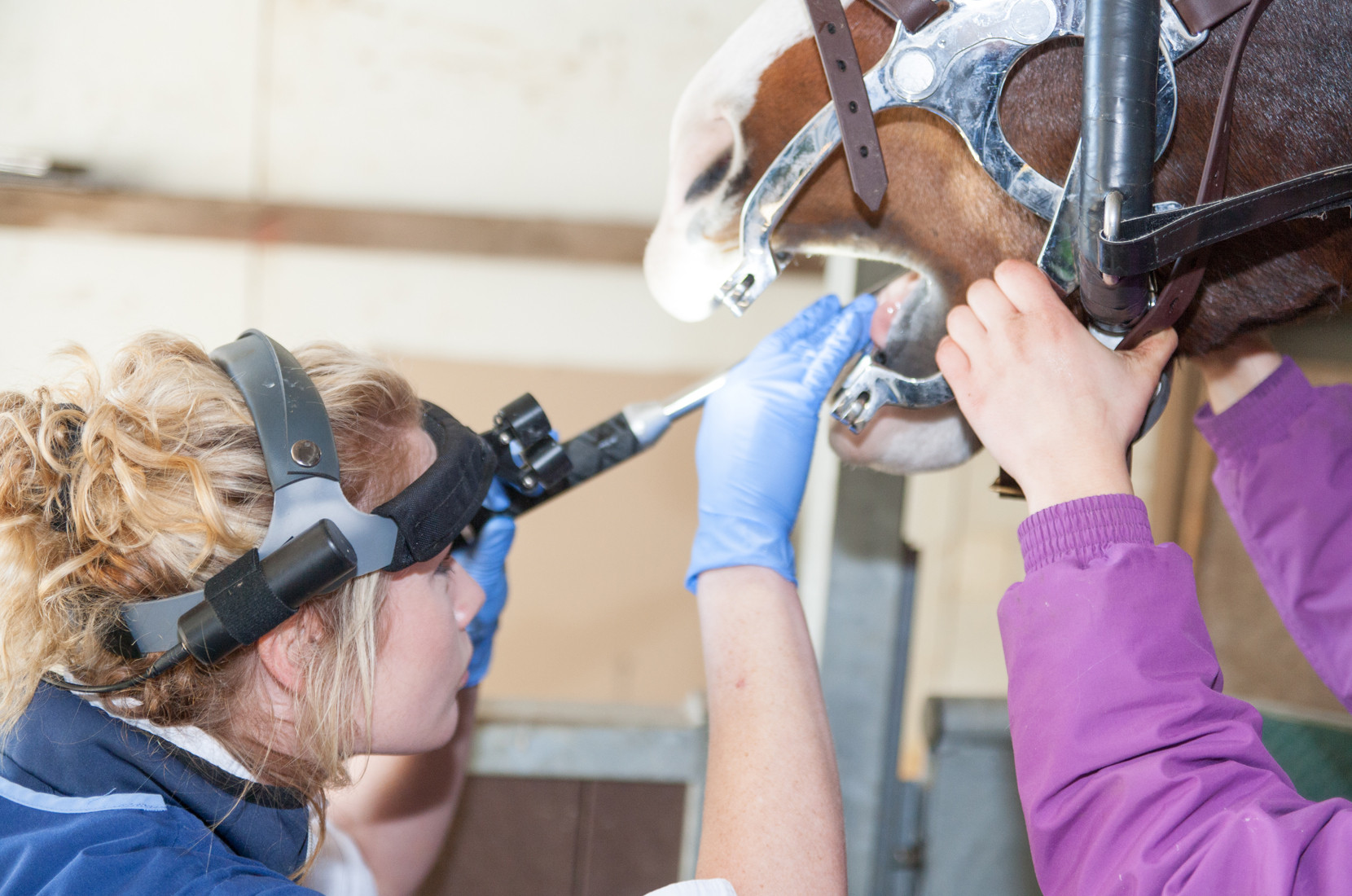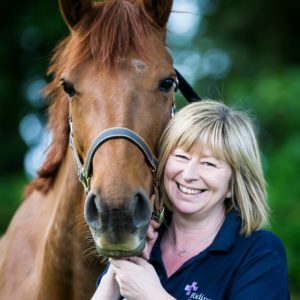Why should I get my horses teeth checked?
Dental disease can be a huge source of pain and discomfort in horses. Ensuring your horse has routine oral examinations carried out by a suitable qualified professional can ensure any potential dental issues are identified before they become a serious problem. Horses teeth continuously erupt throughout their life. If the rate at which their teeth erupt is not match by the rate of wear dental problems can occur.
The following are some of the common dental issues we see in horses:
- Sharp enamel points and overgrowths- this is the most common reason we perform dentistry work in horses. Sharp enamel points and overgrowths occur due to abnormal wear of a horses’ cheek teeth. If left untreated they can lead to painful ulceration of the mouth and a reduced ability to eat.
- Wolf teeth- these are the first pre-molar in horse’s mouth. They are the first permanent tooth to erupt and are present from approximately one year of age. Most commonly they occur on the upper arcade but they can occur in the lower arcade as well. It is currently under debate if normal wolf teeth cause a problem. However, if they are loose, abnormally positioned or likely to be causing discomfort it is advisable to remove them. We always sedate horses prior to removing wolf teeth and use local anaesthetic around the tooth. It is advisable to bit-rest horses for a week after removal.
- Diastema- a diastema is a gap that can develop between two teeth. This creates a pocket for food to become impacted which is not only very painful but can lead to serious gum disease. The presence of a gap also alters the normal occlusion between the upper and lower teeth which can lead to abnormal wear of the teeth and the formation of overgrowths.
- Retained caps- During normal development young horses deciduous (baby) teeth are shed as the permanent teeth erupt. Retained caps occur when these deciduous teeth remain ‘sitting on top’ of the newly erupted permanent teeth. We would consider removing any loose or displaced caps but otherwise they are monitored and left to detach themselves.
- Fractured teeth- Trauma is one of the most common causes of fractured teeth in horses. Fractures can also occur as a consequence of the tooth structure weakening secondary to infection within the tooth. Often fractured teeth go undetected until a routine dental is carried out. Fractured teeth can cause serious problems including infections which lead to sinusitis, weight loss and behavioural problems. It is advisable to remove all fractured teeth and in some situations it may be necessary for this to be carried out by a referral hospital.
What are the signs of dental disease?
Some horses will show little to no signs of oral discomfort despite having significant dental abnormalities. Clinical signs which may indicate dental disease are:
- Dropping partly chewed food (quidding)
- Problems when ridden
- Smelly nasal discharge
- Bad breath
- Facial swelling
- Pouching of food in the cheeks
- Long pieces of fibre in faeces (>2mm)
- Weight loss
- Recurrent colic or choke
How do you treat dental disease in horses?
Firstly we carry out a full oral examination on the horse. Part of this examination involves using a mouth gag which allows us to look and feel all the way to the back of the horses mouth. Some horses may need sedation to allow us to do this safely and effectively. What we discover during our oral examination will determine the treatment. For most horses this will involve using motorised rasps to remove sharp points and overgrowths. If further treatment is required we will discuss this at the time.
Who should check my horse’s teeth?
In order to maintain the highest standards of care for our clients we believe clients should only allow vets or qualified equine dentists to take care of their horses’ teeth. All of our vets have a keen interest in dentistry and have undergone extra training in this area. If you chose to use an Equine Dental Technician for your routine dentistry please ensure they are fully registered and qualified with one of the two following organisations:
- British Association of Equine Dental Technicians www.baedt.com
- Worldwide Association of Equine Dentists www.wwaed.org.uk/wwaed-category-2-list
How often should I get my horses teeth checked?
Horses are all individuals and it is important to remember this when considering booking in their dental examinations. Some horses will only need checking once a year, others will benefit from more regular examination and rasping. We recommend a pro-active approach to dentistry and believe it is beneficial for most horses to be checked on a 6 monthly basis- regular checks allow us to monitor sharp points and overgrowth and ensure they do not get the stage where they cause pain and discomfort. It also allows any more serious dental issues to be picked up early. If you are booked in for a dental and we feel it is not necessary, we will say so and book your horse in for a later date.
Should I get my horse sedated?
This is another subject area which is under debate within the veterinary profession. Sedation has many benefits. When a horse is sedated we are able to do a really thorough examination and inspect each individual tooth. We can then be very precise with our rasping and ensure we do as good a job as possible and pick up on any small changes which may lead to problem in the future. It is also a lot safer for us, the horse and the handler- dental gags are big and certainly hurt if you get knocked by one! However, we do appreciate there are some horses and ponies out there that stand perfectly to have their teeth done and while we feel we can do a good job safely without sedation we will continue to do so. But please remember there is no shame in needing your horse sedated for a dental- it is very unnatural for a horse to allow us to put loud machinery in its mouth and it is not surprising that some horses don’t tolerate it. A horse suffering from oral discomfort will often not tolerate having its teeth done for obvious reasons- in this situation sedation allows us to treat the underlying problem while the horse remains comfortable and relaxed. So please consider sedation next time you and your vet are being flung around the stable- we can make it a better experience for everyone.
If you have any questions, please don’t hesitate to contact us on 07747771182.
Anna x

